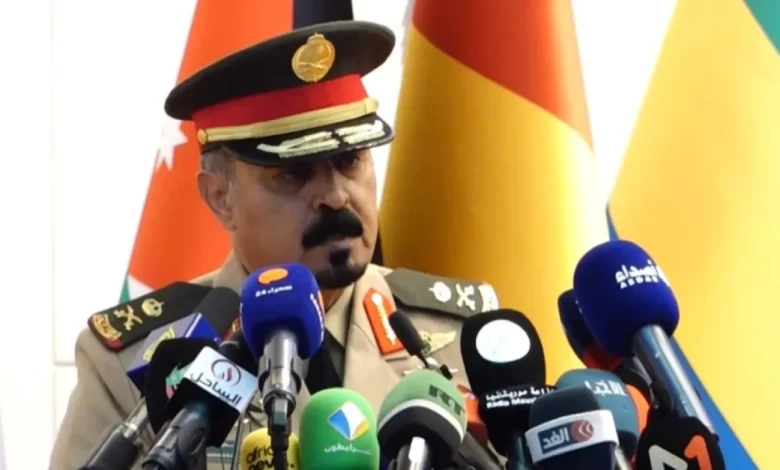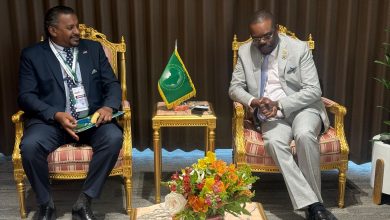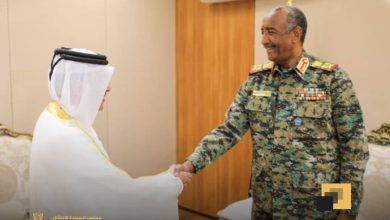InternationalNews
The Islamic Military Counter Terrorism Coalition Launches Program in the Sahel Region

Sudan Events – Agencies
The Islamic Military Counter Terrorism Coalition (IMCTC) launched its program to combat terrorism in the five Sahel countries—Mauritania, Mali, Niger, Burkina Faso, and Chad—on Monday. These countries have long been among the world’s most affected by terrorist attacks, which have claimed the lives of thousands of civilians.
The program was inaugurated in Mauritania’s capital, Nouakchott, in the presence of representatives from other Sahel countries and under the supervision of IMCTC Secretary-General, Saudi Air Force Major General Mohammed bin Saeed Al-Moghedi.
Strategic Necessity
During the launch event for the Sahel program, Major General Al-Moghedi stated that the Sahel region is “not merely an expansive geography but a vital artery for the stability of the entire world.”
He emphasized the IMCTC’s commitment to supporting the Sahel countries, describing it as a “strategic necessity, not a choice.” The five-year support program will focus on four main pillars: enhancing ideological and media dimensions, combating terrorist financing, developing military capabilities, and improving regional coordination among Sahel nations.
Al-Moghedi highlighted the choice of Mauritania for the program’s launch as a testament to the country’s commitment to fighting terrorism and its active role within the coalition. He praised Mauritania’s ongoing efforts to strengthen security and stability in the region.
An Islamic Coalition
Regarding the IMCTC, which comprises 42 member states, Major General Al-Moghedi explained that it was launched as an initiative by Saudi Arabia in December 2015. He described the coalition as “a pivotal turning point in the journey of collaboration against terrorism and extremism.”
He added that the coalition “is not merely a fleeting idea but a comprehensive strategic framework aimed at unifying and shaping a collective vision to combat extremism in all its forms while reinforcing the values of moderation and balance inherent in Islam.”
Al-Moghedi noted that the February meeting of the IMCTC Defense Ministers in Riyadh yielded key recommendations, including the implementation of the Sahel program.
A Pressing Threat
Mauritania’s Minister of Defense, Hanenna Ould Sidi, described terrorism as “a significant danger to the world, particularly to our nations and Islamic communities.” He warned of its grave consequences, including “the loss of innocent lives, damage to social fabric, and threats to the integrity of established states.”
During the program’s launch, he emphasized that the Sahel region is enduring “daily destructive impacts from terrorist activities,” which necessitates enhancing and refining counter-terrorism methods. He further stressed that “terrorism is a complex phenomenon, influenced by a range of social, economic, security, intellectual, and cultural factors.”
Ould Sidi highlighted that effective counter-terrorism efforts must address these dimensions comprehensively. He pointed out that Mauritania’s security strategy focuses on integration and inclusivity, particularly in the intellectual and cultural dimensions, as terrorism stems from an ideological stance before becoming a field practice.
He concluded that “achieving sustainable victory over terrorist groups requires cultural and intellectual triumph alongside military success.” He also emphasized the critical role of media in this intellectual battle, describing it as “one of the most powerful tools for cultural and ideological victory over terrorism in the digital age.”
Saudi Initiative
The IMCTC, comprising 42 member states, was established through a Saudi initiative announced by Crown Prince Mohammed bin Salman in December 2015 to unify efforts of willing Islamic nations to combat terrorism.
During the February 3 meeting of the IMCTC Defense Ministers in Riyadh under the theme “Combating Terrorism is a Shared Responsibility,” participants reaffirmed their commitment to enhancing cooperation against terrorism and coordinating joint efforts to mitigate its risks.
These initiatives are part of regional efforts to combat terrorism, enhance the local capabilities of Sahel countries, and share expertise. They also aim to promote values of tolerance and moderation while bolstering regional stability.



